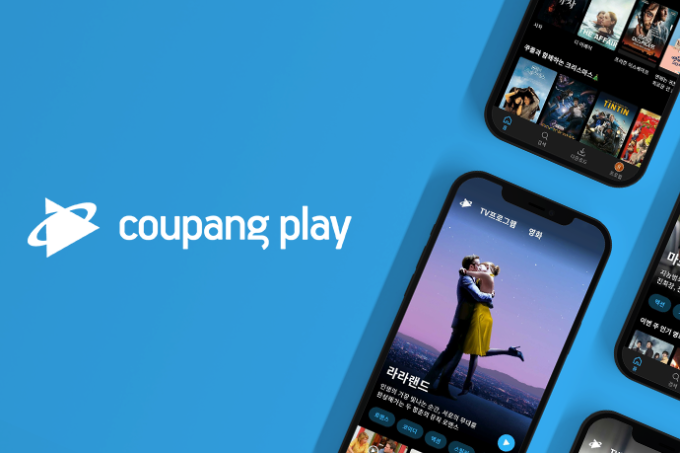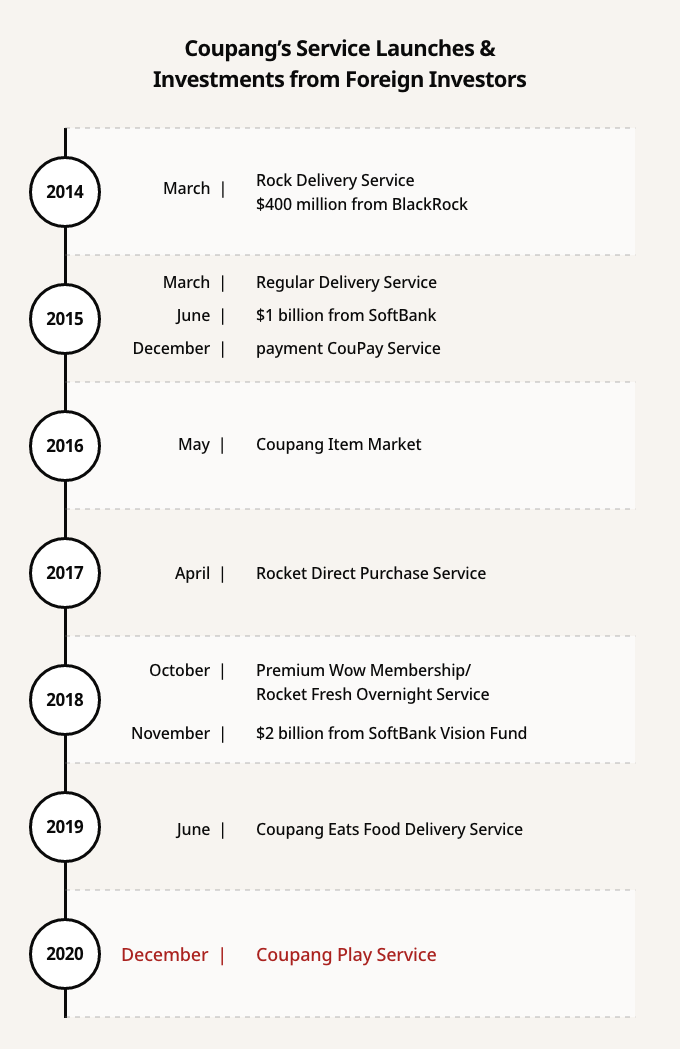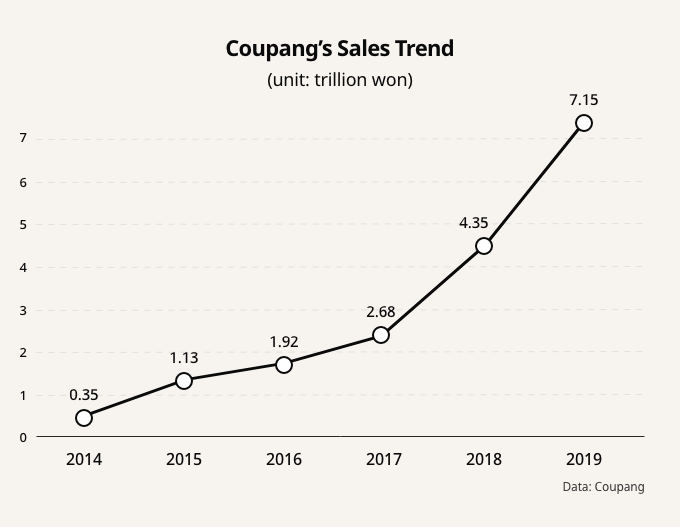SoftBank-backed Coupang enters Korea’s competitive video streaming arena
By Dec 24, 2020 (Gmt+09:00)
LG Chem to sell water filter business to Glenwood PE for $692 million


Kyobo Life poised to buy Japan’s SBI Group-owned savings bank


KT&G eyes overseas M&A after rejecting activist fund's offer


StockX in merger talks with Naver’s online reseller Kream


Mirae Asset to be named Korea Post’s core real estate fund operator



South Korea’s e-commerce giant Coupang Corp. has thrown down the gauntlet to compete against Netflix Inc. and other local streaming service providers in the country’s growing over-the-top (OTT) market.
The e-commerce operator said on Dec. 24 that it is launching a subscription-based video streaming service, Coupang Play, in a bid to broaden its services from parcel and food delivery, digital payments and online shopping to original video content services.
Coupang Play will initially be available on Android devices for some 5 million Coupang Wow subscribers. Coupang Wow is the online shopping mall’s premium service that offers delivery, free returns and other benefits for a monthly subscription fee of 2,900 won ($2.6).
For a single account held by Wow members, up to five people will have access to Coupang Play’s OTT service. That compares with Netflix's premium service in Korea, which allows four people to access video content under a single account at a monthly fee of 14,500 won. Netflix's cheapest plan in Korea is 9,500 won a month.
Coupang Play will later also be available on Apple’s iOS and other operating platforms.

Widely regarded as Korea’s Amazon, Coupang faces tough competition from the likes of Netflix and homegrown players Wavve and Watcha.
Netflix, with its 3.6 million members, has enjoyed success in the Korean market especially on the back of its original series content. In September, the US streaming giant set up a separate production company to finance Korean-language content.
GEARING UP FOR DIFFERENTIATED SERVICE

A Coupang official said the company is in negotiations with large US content providers to secure rights to air sporting events such as Major League baseball games in Korea.
In its efforts to gear up for video streaming, Coupang in July acquired Singaporean OTT service Hooq, once one of the top three players in the Southeast Asian market.
Established in 2010 by Chief Executive Bom Kim, Coupang has been aggressively expanding into new businesses, mirroring US e-commerce giant Amazon.com
Coupang is known for Rocket Fresh, a same-day or next-day delivery service for fresh food, utilizing its 170 logistics centers across the nation.
On the back of the growing popularity of its quick delivery services, Coupang’s sales increased to 7.15 trillion won in 2019 from 348.4 billion won in 2014. This year, its sales are forecast to rise further to nearly 10 trillion won as many people were grounded at home amid the COVID-19 pandemic.
STREAMING TO CREATE NEW MARKET FOR COUPANG
Analysts said Coupang Play will create a new market for the e-commerce operator by combining it with its existing services such as delivery and digital payments to commercialize various content on its platform.
Some critics, however, say that the company, struggling under huge operating losses every year, will need to attract extra investment to make its streaming service another success story.

In 2015, Coupang raised $1 billion from a new share sale to SoftBank, a year after it raised $300 million from a consortium led by BlackRock. In early 2014, California-based venture capital firm Sequoia Capital invested $100 million in Coupang.
Coupang reported an operating loss of 720.5 billion won in 2019, down from a loss of 1.12 trillion won the previous year. Its accumulated losses since 2014 reached some 3.72 trillion won last year.
Write to Dong-Hui Park at donghuip@hankyung.com
In-Soo Nam edited this article.
-
 K-contentK-content companies set to rule 2021 stock market after breakneck growth
K-contentK-content companies set to rule 2021 stock market after breakneck growthDec 14, 2020 (Gmt+09:00)
3 Min read -
 K-contentK-content’s ‘unfamiliar familiarity’ theme goes viral on global stage
K-contentK-content’s ‘unfamiliar familiarity’ theme goes viral on global stageNov 29, 2020 (Gmt+09:00)
5 Min read -
 Naver, CJ ink $531 mn deal on entertainment content, logistics
Naver, CJ ink $531 mn deal on entertainment content, logisticsOct 27, 2020 (Gmt+09:00)
2 Min read -
![[Upcoming IPO] Korean streaming service Watcha secures funding to join global players like Netflix](/data/ked/image/2020/07/KakaoTalk_20200723_092731396.145x94.0.png) [Upcoming IPO] Korean streaming service Watcha secures funding to join global players like Netflix
[Upcoming IPO] Korean streaming service Watcha secures funding to join global players like NetflixJul 23, 2020 (Gmt+09:00)
4 Min read -
 Naver inks $83.8 million investment deal in SM Entertainment to boost streaming platform
Naver inks $83.8 million investment deal in SM Entertainment to boost streaming platformAug 04, 2020 (Gmt+09:00)
3 Min read -
 Korean dramas push cultural content exports beyond $10 billion
Korean dramas push cultural content exports beyond $10 billionAug 10, 2020 (Gmt+09:00)
4 Min read


